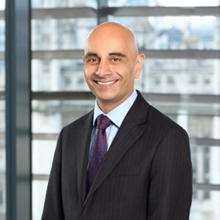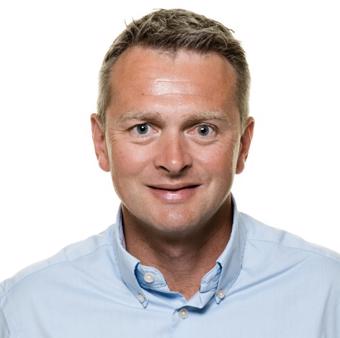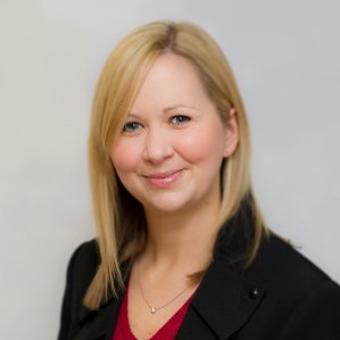Talks to The Brief about his legal career, the importance of social mobility, and how Liverpool is a natural fit for a firm that specialises in life sciences and technology.
Saleem Fazal is a partner and head of UK Real Estate Disputes at Taylor Wessing. In 2018 he led the firm’s expansion into the North West of England and now, in addition to running the global firm’s UK property litigation practice, is responsible for managing its rapidly growing Liverpool operation.
The global law firm Taylor Wessing was formed in 2002 by the merger of the British firm, Taylor Joynson Garratt and the German firm Wessing & Berenberg-Gossler. Both predecessor firms had long histories, with Taylor Joynson Garrett tracing its lineage back to 1788 and Wessing & Berenberg-Gossler having its origins in a business founded in Hamburg in 1873.
Today the firm employs more than 1,000 lawyers in 28 offices worldwide and is particularly well-known for its work in the private wealth, life sciences and technology sectors. Its most recent new office, located in Liverpool, opened its doors in late 2018.
This office is led by Saleem Fazal, partner and head of the firm’s UK Real Estate Disputes group, who joined Taylor Wessing in 2004. The Liverpool office is, he says, the firm's fastest growing office, the second largest in the UK and central to the firm's international offering. For that reason, a longstanding partner who really understood the firm was chosen to lead the project.
He explains, “The culture had to be right and, to make sure that happened, they wanted a partner who already understood our culture and business, to lead our ambitious plans for growth.
“The nature of my job as a litigator means I focus on solutions and success. It seemed a good opportunity to put that experience to good use.”
Developing market
The city was chosen as the location for Taylor Wessing’s first UK operation north of Cambridge because, Fazal says, “We saw it as a thriving city, which was not as mature in terms of legal services as, say, Manchester. More importantly, though, we were really interested in what was going on in the Knowledge Quarter, with its creativity and focus on our key sectors: life sciences and technology.”
The Liverpool operation started out in a large serviced office which, initially, housed a team of just nine on day one. Headcount grew rapidly, through to a team of 25 in its first months, and Taylor Wessing now employs more than 100 people in the historic port city, divided between business services and legal services.
To provide a more permanent home for its people in Liverpool, and accommodate future growth, last spring Taylor Wessing took a ten-year lease on new landmark premises in the city’s Royal Albert Dock. This was reportedly the largest Liverpool city centre office deal to complete during the second quarter of 2020.
The new office, although yet to be put to full use because of the pandemic, is, Fazal says, “the envy of our other colleagues in the UK”. The building that houses it is a converted 19th century warehouse, set among the largest collection of Grade I-listed structures anywhere in the UK.
Lockdown recruitment
Covid-19 restrictions have generated challenges, and Fazal says, “It's certainly been an interesting period for recruitment. On the one hand the market is thriving and we're seeing so much talent applying for positions as result of people making new life choices and prioritising positions that give them the balance of exciting and challenging work, with more flexibility, with what's important to them personally. On the other hand, it's to be expected that people will find it more difficult to make that leap of faith when they've been restricted to meeting colleagues only virtually.”
The Liverpool office has, nonetheless, recruited 58 people since the beginning of the pandemic and, Fazal says, “We’re continuing to see more traction. Not a day or two goes by without an interview taking place.”
As we move forward to the next phase of unlocking, he envisages ramping recruitment up further. He also looks forward to the newest recruits being able to meet each other, and their more established colleagues, in person and get to know each other.
“Like most organisations, we have colleagues that haven’t met in-person,” he says. “We’ve been lucky with our investments in technology across the firm that have enabled remote working seamlessly and we've hosted many online events but wanted to do them a bit differently.
“We arranged a new joiner event with around 45 people completing a virtual escape room challenge, so they all felt supported and could get to know each other, and they’ve kept in touch and are working together. Now when they get back to the office, they’ll already be familiar with each other and work well together.”
However, the return to the office won’t mean a return to 2019 ways of working. “Our new hybrid working model has been accelerated throughout our UK offices,” Fazal explains.
This, he says, means the firm now has more scope to expand within its current office space, which has the flexibility to be utilised differently.
Opening moves
For Fazal himself, the move to Liverpool marks something of a return to his maritime roots. His father was in the Royal Navy and he grew up in Portsmouth before going to university in that other great Northern port city, Newcastle-upon-Tyne.
He grew up in a working-class family, he explains, who pushed him hard throughout his school career but were not in a position to provide guidance on professional career paths. It was, in fact, his A-Level German teacher who first suggested he might be suited to the law.
“I used to play a lot of chess at the time, and she told me that law was just like a game of chess, because it was all about strategy,” he explains. “So, I picked up a book on contract law and was really inspired by some of the scenarios it described, and I thought I’d give it a go.”
After completing his law degree, Fazal secured a training contract in Eversheds’ Birmingham office, where he remained until 2004. It was while training that he “fell in love – strangely because I hadn’t enjoyed studying it at all – with real estate”.
His interest was sparked by working on a project that involved the acquisition and demolition of a building, and the subsequent construction of a small shopping centre. “I saw all the legal issues that go into all the different stages, from getting vacant possession, to the rights that neighbours would claim they had, to dealing with tenants,” he says.
“What was really exciting was seeing all the provisions, which I’d never really thought about, that go into commercial tenancy agreements, which talk about the tenants themselves being responsible for bringing that shopping centre to life – what marketing they’re going to be doing, what offers they’re going to be making, when are they going to be opening, and what their interaction with the other tenants is going to be. It is almost like a joint venture with them – not just a legal approach but a complete commercial approach.”
After almost a decade in Birmingham Fazal realised that, as a litigator, he was spending a lot of time on the train to and from London to attend court hearings, and decided to look for an opportunity to move to the capital himself. In 2004 he joined Taylor Wessing as a senior associate and, a year later, became a partner.
The team he leads has, like Taylor Wessing’s other teams, groups of people working together across its offices in Liverpool and London , with strong collaboration and neither office taking precedence over the other. Fazal tends, he says, to specialise in development projects and, as well as working for the businesses, often in life sciences, with which Taylor Wessing has existing relationships, he is also instructed by pension funds and large companies.
Knowledge economy
As well as viewing Liverpool and its surrounding area as a rich source of talent, Taylor Wessing is engaged in a number of initiatives to help embed itself in the city’s legal, life sciences and technology sectors. Fazal sits on the Liverpool Law School advisory board and the firm works closely with the University of Liverpool’s technology faculty, at which it is planning to sponsor a PhD student to carry out research in the field of data science.
Widening access
Fazal says his background has made him passionate about promoting social mobility in the legal sector. Taylor Wessing has, he continues, been involved for many years with an organisation called Future First, an organisation that sends relatable role models into state schools and colleges to help broaden students’ horizons.
In Liverpool the firm has, through Future First, partnered with three local schools, each chosen on the basis of having the highest take-up of free school meals in its area. The partners chosen to go and talk to students at these schools all come from working-class backgrounds, Fazal explains, “so we can inspire the students and encourage them through our own life experiences and achievements.”
A strong advocate for inclusion, Fazal is solely responsible for the firm's longstanding connections with Freehold. Not only does he lead the firm's LGBT+ network, EqualiTW, he is the co-founder of the industry's first, and award winning, LGBT+ network for real estate professionals, Freehold.
Fazal is also keen to emphasise that working for a law firm does not have to mean working as a lawyer. Taylor Wessing’s Liverpool office "is known for being dubbed an innovation hub", employing professionals engaged in a range of operations including risk, talent, IT support, business systems, business development and finance.
“Encouraging social mobility isn’t just about encouraging people into legal practice,” he says. “It’s also about the really fantastic people we have working in our business who are not lawyers and add tremendous value with their areas of expertise. They are essential to our work with clients. That is a message we really want to get across."
Visit:
Connect with Saleem Fazal on LinkedIn












